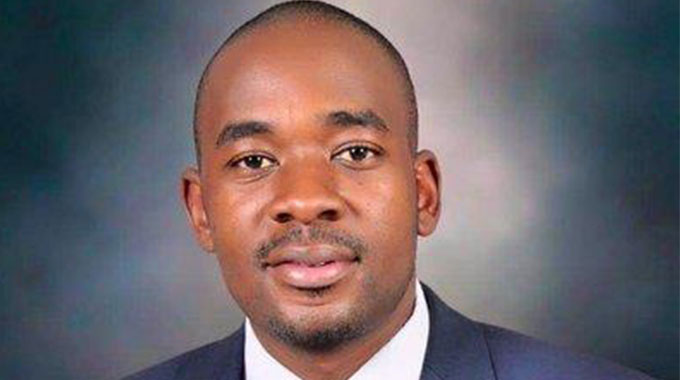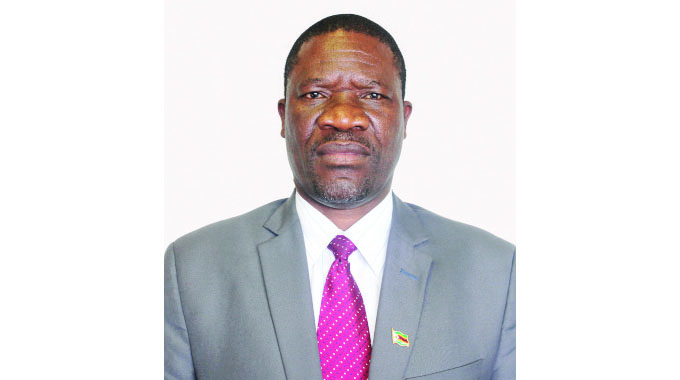ZEC gazettes President Mnangagwa’s re-election

Nqobile Tshili, [email protected]
GOVERNMENT has proclaimed Statutory Instrument (S.I.) 1380A of 2023 in line with the Electoral Act [Chapter 2:13], confirming President Mnangagwa and other winners of last week’s harmonised election.
The development paves the way for the President’s imminent inauguration for the second term and the swearing-in of Parliamentarians and councillors.
President Mnangagwa of Zanu-PF emerged victorious after defeating 10 other contestants, clinching 52,6 percent of the total vote with Mr Nelson Chamisa of the Citizens Coalition for Change (CCC) coming a distant second with 44 percent of the vote.

Mr Nelson Chamisa
Zanu PF garnered a majority in Parliament after winning 136 seats while CCC won 73. This means the revolutionary party also has the majority proportional representation seats inclusive of senators, women’s and youth quotas, and provincial councillors.
“It is hereby notified, in terms of section 110 (3)(j) of the Electoral Act [Chapter 2:13], that Mnangagwa Emmerson Dambudzo of Zanu-(PF) party has, with effect from the 26th August 2023 been duly elected as the President of the Republic of Zimbabwe,” reads the Government Gazette, citing the Zimbabwe Electoral Commission chairperson Justice Priscilla Chigumba as the confirming authority.
In the same instrument, ZEC chief elections officer Mr Utloile Silaigwana confirmed the election of senators representing chiefs, Chief Mtshane, the National Council of Chiefs president, and his deputy Chief Charumbira.

Mr Utloile Silaigwana
ZEC also confirmed two chiefs each elected to the Senate from the country’s eight rural provinces.
Similarly, Mr Silaigwana recognised two senators who were elected to represent persons with disabilities Annah Shiri and Ishumael Zhou.
Using the same piece of legislation, the elections body also gazetted the National Assembly, Provincial Council, and Senate members who were declared winners in the just-ended elections across the country’s 10 provinces.
Commenting on this development, legal expert Advocate Kucaca Phulu said the piece of legislation is an indicator that the Government is preparing for the inauguration of the President and swearing in of legislators and councillors.
“The implication of this gazette is that the Government is preparing to announce the inauguration date for the President and swearing in of MPs and councillors,” said Adv Phulu.
He said the legal path is also a test for the CCC on whether it will continue making empty claims relating to the election, or it will then take matters to court.
“This will be a serious indicator on whether they will accept the result of the general election. If they challenge the result of the general election, they will have to file an election petition.
“Otherwise, the strategy of saying that they don’t recognise the election doesn’t work,” said Adv Phulu.
He said it remains to be seen if the opposition MPs and councillors would boycott the swearing-in processes, noting that in the event that they attend, it will be fatal to CCC’s claims of rejecting the election process.
Meanwhile, global powers within the Brics bloc continue to congratulate President Mnangagwa and Zanu-PF for winning the recent harmonised elections. Yesterday, the Russian Federation joined the People’s Republic of China, and South Africa, which are members of Brics to acknowledge President Mnangagwa’s re-election. Countries within Brics are well known for exercising politics of non-interference in the sovereignty of nations. This is in contrast to the Western countries whose agenda is to effect regime change agenda on independent states.
While countries within the Brics framework have called on Zimbabweans to exhaust internal channels of addressing disputed elections, the United States of America, issued a statement that it is engaging regional leaders to share its concerns on Zimbabwe’s electoral processes.
However, countries in the region inclusive of Botswana, Namibia, and South Africa have ignored Western pressure, giving the thumbs-up to Zimbabwean elections.
In a letter to President Mnangagwa, Russian President Vladimir Putin who met President Mnangagwa in Russia last month issued a heartfelt congratulatory note to his colleague for being re-elected to serve as the country’s leader.
“Your Excellency, dear Mr Mnangagwa, please accept the heartfelt congratulations on your re-election as the President of the Republic of Zimbabwe. Russia and Zimbabwe enjoy the relations of friendship, as our recent meeting at the Second Russia-Africa Summit fully confirmed,” said President Putin.
He said it was his hope that President Mnangagwa’s re-election will not just benefit Zimbabwe but also contribute to the security and stability of African states.

President Emmerson Mnangagwa
“I trust that your work as the Head of the State will contribute further to development of the constructive bilateral cooperation for the benefit of our people, in the interests of strengthening security and stability on the African continent,” said President Putin.
“I wish you every success, as well as sound health and well-being.”
Political analyst Mr Teddy Ncube said the recent development speaks to the shifting power dynamics where the Western-biased influence is being challenged.
“This situation highlights the idea that the world can function without exclusive reliance on Western powers, marking a shift from a unipolar world to a more multipolar one,” he said.
“The fact that Brics countries are actively engaging with and supporting non-Western governments, such as in Zimbabwe, suggests that they are asserting their own interests and perspectives.
“This demonstrates that the world is no longer solely dependent on the West for political and economic alliances,” said Mr Ncube.
He said the Brics policy of non-interference on independent states’ sovereignty makes it a reliable partner in pursuit of the development agenda.
“By emphasizing respect for sovereignty, Brics countries promote a cooperative approach that allows nations to pursue their own paths of development without external interference,” said Mr Ncube.
“This can foster a sense of autonomy and self-determination among developing countries, potentially leading to more equitable partnerships and regional integration.”
Another political analyst Mr Methuseli Moyo said while Western countries have previously shaped the international community opinion, the growth of Brics influence is changing the narrative.
“As expected, the Western countries have either criticized the elections or withheld their congratulatory messages, so far. On the other hand, the Brics nations have come out to congratulate President Mnangagwa and Zanu PF for their victory,” he said.
“The West is no longer the ‘international community.’ Their perspective on issues has been challenged by Brics. Zimbabwe will continue to collaborate with its friends in Brics.”
-@nqotshili











Comments